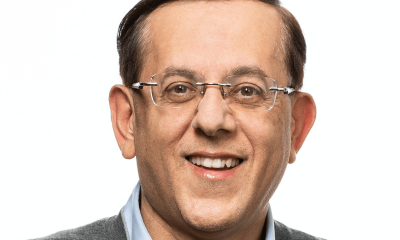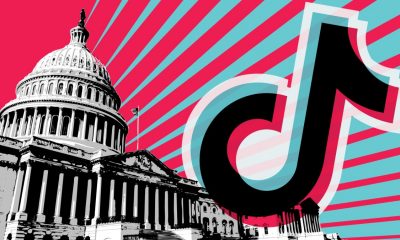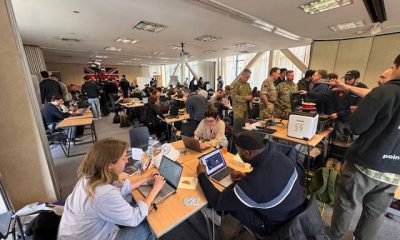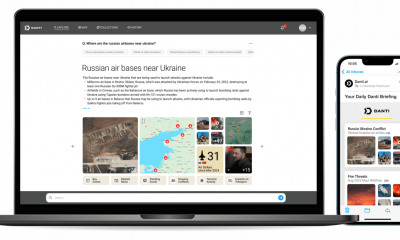Entertainment
My friend and I have mismatched friendship tiers

When I was younger, I would wander around the pre-teen jewelry store Claire’s imagining myself decked out in its wares. I often came across dual necklaces, each with a broken half of a heart with the inscription “greatest friends.”
I never bought these necklaces out of fear that whomever I considered my greatest friend at the time would not reciprocate this label, and just the thought of that rejection crushed me into inaction.
Even in adulthood, I hear stories of uneven friendship “levels” and the negative spiral it induces. If your greatest friend has ever implied that you’re not theirs, it can indeed be crushing. Why might this be, and what should you do about it? Communication and friend experts tell Mashable that everyone has their own individual measures — and that labels aren’t the most important part of friendship, anyway.
What’s in a friend?
Despite what you may think, there’s no one way to think about friendship. “We know some people are quite willing to call just about anyone a friend and are good with that,” explained professor of communication studies at the University of Kansas, Jeffrey Hall. “Other people,” however, “tend to be much more restrictive” with who they call a friend.
“Just by that…difference in people’s standards of what qualifies as a friend, you’re going to see disconnections or disagreements about the level of closeness,” Hall said. “It’s actually a pretty common thing for this to happen for children and for adults to have different definitions of what qualifies as a friend.”
“People’s classification systems are very individual,” said author of The Friendship Cure Kate Leaver, but “depend on things like how that person makes you feel, how you met, how often you see or contact them, and what level of comfort and how and solace you give each other.”
A study about how persuasion by friends can lead to behavioral change shows this potential disconnect. The researchers asked undergraduate students to rate each other on a scale from not knowing the person to “greatest friend.” People who named someone as a friend expected that friend to do the same — but that only occurred in 53 percent of cases.
Leaver reiterated that two friends who think differently about the level of friendship probably do so because we bring the weight of our past experiences, relationships, and traumas to every profound interaction we have. “It’s almost impossible to expect they’d match every time with someone who comes into our lives,” she said.
How social media impacts friendship
There’s a perception — at least from older people — that Facebook (and social media overall) downgraded what people think of as a “friend,” due to the friending action on the platform. That’s not actually the case. While you may have thousands of Facebook friends (or Instagram or TikTok followers) people only have the capacity to hold 150 relationships at one time. This number is called Dunbar’s number after anthropologist Robin Dunbar, who determined this in the 1990s and it still holds today.
Our outermost layer of weak ties has certainly expanded in the age of social media, said assistant professor of communication at the University of Nevada, Las Vegas, Natalie Pennington, but there are still limitations in how many close relationships we can have.
Twitter cliques might feel like high school, but their existence is tied to our human nature
This is because relationships, including friendships, require a consistency of effort to be maintained. In his research, Hall sussed out two necessary factors to friendship: mutual like, and time.
“So much of our relationships take time to build,” Hall said. “Friendships are really dependent on the idea that people have easy access to one another to spend time with.”
Of course, it’s possible to spend a lot of time with a person — say a coworker — and not be friends. When it comes to close friends especially, other factors like self-disclosure, intimacy, provision of support, and trust are important, said Pennington.
Just like people have different measures of who to call friends, though, they also have different standards of what it means to be intimate, Hall said. You can know someone for a decade and they may never reveal any personal information, while someone you met five minutes ago is dishing details about their life. One isn’t more desirable than the other — they’re just different, just as every person is.
When it comes to being mismatched about how close you are with another person, perceived intimacy can be another factor. The ability to keep up with people or to know what’s going on in someone’s life through social media is unsurpassed, Hall said. Just like one-sided parasocial relationships leave you with a sense of intimacy that isn’t really there, so can passive viewing of deep knowledge of someone through their social media accounts.
“A lot of the work about relationship development is that it’s this…slow process,” Pennington explained. “I peel away these layers to reveal who I am. You share, I share, [it’s] reciprocal.”
Social media, however, doesn’t make it reciprocal. “I could just post and share some things,” Pennington continued, “you might wedge in really quickly to learn something about me that you didn’t intend to.”
What if I’m not my BFF’s BFF?
“I can see how it would be quite shocking and hurtful to find out that someone doesn’t consider you the same level of close friend as you do them,” said Leaver. “It’s disorienting and upsetting to think we might care about someone else more than they do us.”
“So many of our problems can be traced back to our mismatched communication styles, our reluctance to really be honest with people.”
Leaver also attributed this issue to miscommunication. “The older and possibly wiser I get, the more sure I am that so many of our problems can be traced back to our mismatched communication styles, our reluctance to really be honest with people,” she said, “and to get very deep for a second, our fundamental unknowability as people.”
So, what to do in this sticky situation? Leaver said if you find out a close friend doesn’t feel the same way about you, go inward and ask yourself some questions. Do you really care if you’re a “greatest friend” or “good friend,” and why does it matter so much?
After some reflection, remind yourself and you’re safe and loved — and have other friends, as well, said Leaver.
When it comes down to it, tangible impacts of a friendship are more important than the label, said Pennington. If everyone believes they have to have a greatest friend, that can be overwhelming — and she doesn’t think that’s true.
“I don’t know that there’s anything [unique] about having a greatest friend that gets you somewhere,” she said, “but having someone who could support you, having somebody to go to events with you, having someone you know you can call when you need to complain.” Those are more important than the label of “greatest friend.”
Set aside the labels and look at the actions, like communication and support. Those, not labels, are what supports our wellbeing.
Pennington said more research is to be done on labels and this phenomenon of my-greatest-friend-but-not-theirs, but for now, take solace in the fact that friendship is much more than what we call it. It’s about who’s there for us — “greatest friends” necklace or not.
-

 Entertainment7 days ago
Entertainment7 days agoSummer Movie Preview: From ‘Alien’ and ‘Furiosa’ to ‘Deadpool and Wolverine’
-

 Entertainment6 days ago
Entertainment6 days agoWhat’s on the far side of the moon? Not darkness.
-

 Business7 days ago
Business7 days agoThoma Bravo to take UK cybersecurity company Darktrace private in $5B deal
-

 Business6 days ago
Business6 days agoHow Rubrik’s IPO paid off big for Greylock VC Asheem Chandna
-

 Business5 days ago
Business5 days agoTikTok faces a ban in the US, Tesla profits drop and healthcare data leaks
-

 Business5 days ago
Business5 days agoLondon’s first defense tech hackathon brings Ukraine war closer to the city’s startups
-

 Business6 days ago
Business6 days agoPhoto-sharing community EyeEm will license users’ photos to train AI if they don’t delete them
-

 Entertainment7 days ago
Entertainment7 days ago‘Challengers’ review: You’re not ready for Zendaya’s horny love-triangle drama




























